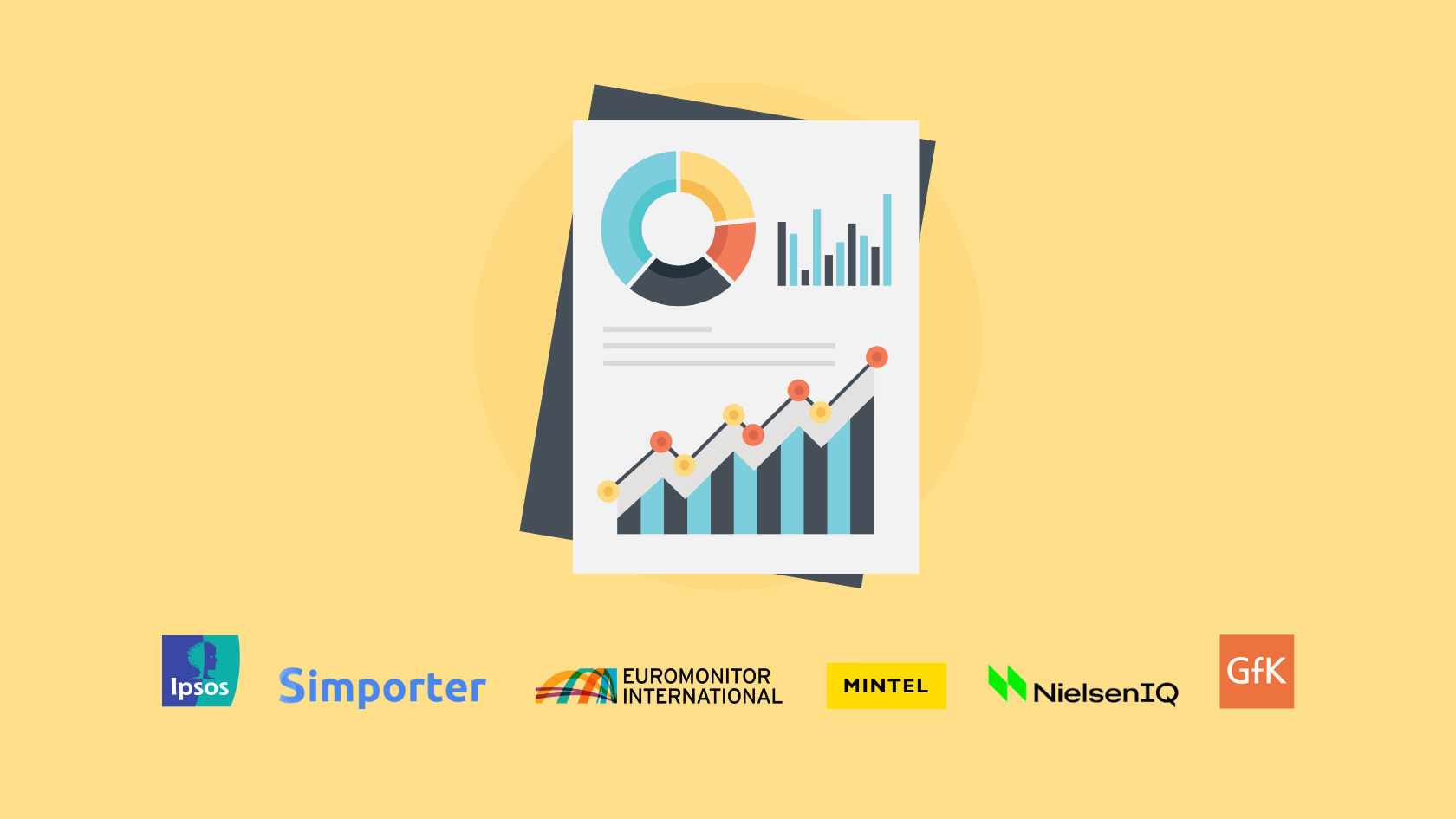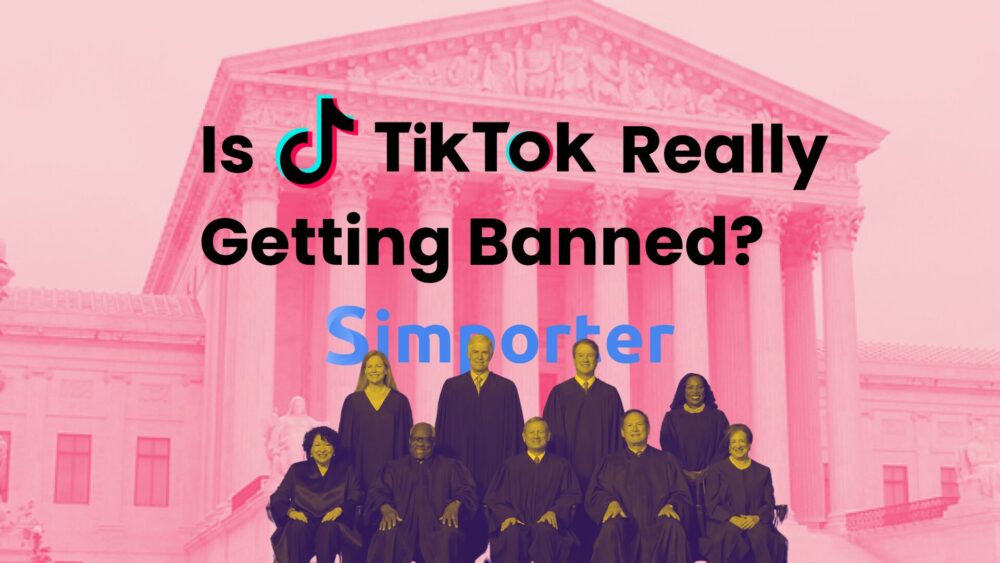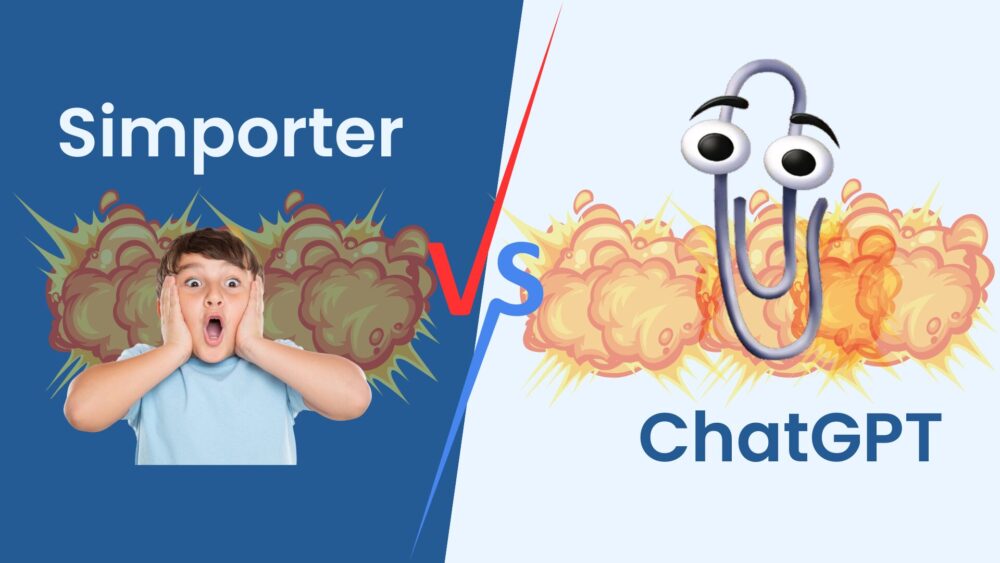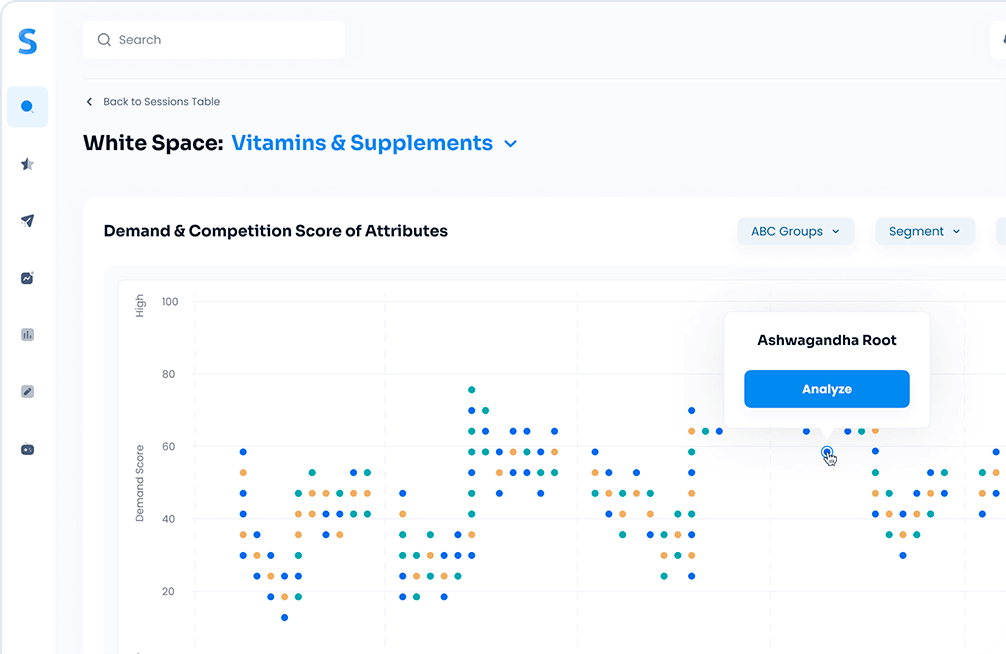Market research companies play a pivotal role in providing enterprises with the insights they need to make informed decisions, develop winning strategies, and maintain a competitive edge. This article examines six leading market research companies, evaluating their strengths, weaknesses, and pricing to help you choose the right partner for your business needs.
Introduction
The consumer goods industry is characterized by rapid change, evolving consumer preferences, and fierce competition. Reliable market research is not just an advantage—it’s a necessity. Market research companies offer valuable services that help businesses understand their target audience, predict trends, and make data-driven decisions.
We’ll be examining six top market research companies: NielsenIQ, GfK, Mintel, Ipsos, Euromonitor International, and Simporter. Each of these companies brings unique strengths to the table, but they also have their own limitations. We’ll evaluate them based on their services, strengths, weaknesses, and pricing to provide a comprehensive overview.
NielsenIQ
Overview: NielsenIQ is a long-standing leader in consumer behavior measurement and media audience metrics. With a global presence and a wealth of historical data, NielsenIQ has been a go-to choice for many large corporations.
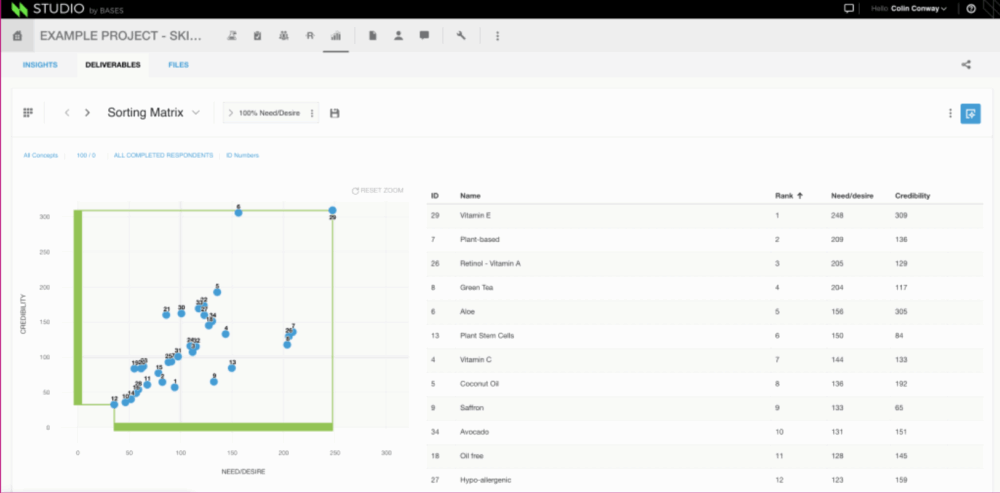
Strengths:
- Comprehensive global data covering numerous markets and regions
- Strong industry reputation built over decades
- Diverse offerings including advanced analytics, retail measurement, and consumer panel data
Weaknesses:
- High dependence on panel data, potentially limiting data comprehensiveness
- Less emphasis on AI and advanced technology compared to newer entrants
- Complex user interface that can be difficult to navigate and interpret
- Premium pricing that may be prohibitive for smaller businesses
Pricing: Typical projects start from $50,000 and can go up to $250,000, making NielsenIQ one of the more expensive options in the market.
Mintel
Overview: Mintel specializes in consumer trends and new product launches, offering insights that are particularly valuable for product development and marketing strategies.
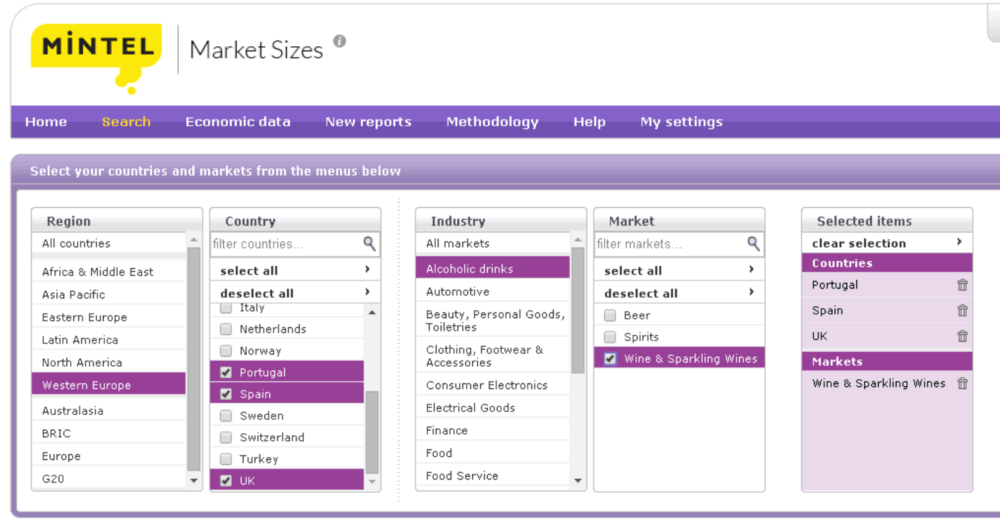
Strengths:
- Robust trend analysis capabilities
- Detailed tracking of product innovations across various industries
- Strong focus on consumer behavior and preferences
Weaknesses:
- High dependence on panel data, which may limit the breadth and depth of insights
- Potentially less technologically advanced compared to AI-driven platforms
- May lack comprehensive data integration from diverse sources
Pricing: Projects with Mintel typically start around $50,000 or higher, placing them in the mid-to-high range of pricing options.
Euromonitor International
Overview: Euromonitor International is known for its strategic market research and data analytics, offering a global perspective on various industries.
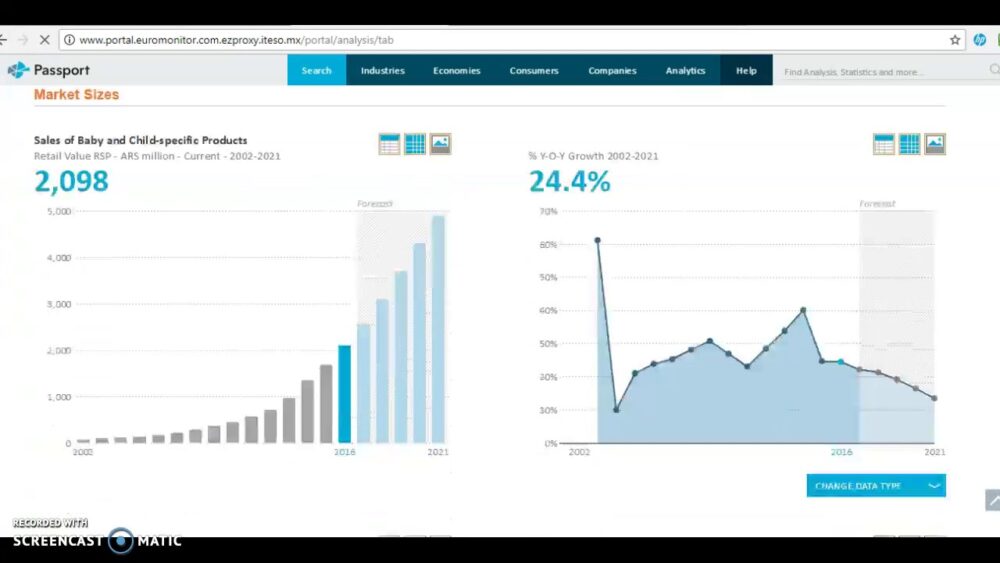
Strengths:
- Extensive global market research covering numerous countries and regions
- Detailed industry reports that provide in-depth analysis
- Country-specific data that can be valuable for international expansion strategies
Weaknesses:
- Heavy focus on traditional panel data, which may not capture real-time market changes
- Potentially less advanced in AI and technology integration compared to newer platforms
- Reports may be less user-friendly or visually appealing, potentially making data interpretation challenging
Pricing: Basic subscriptions with Euromonitor International may start around $80,000 or higher, making them one of the more expensive options, especially for smaller businesses or those with limited research budgets.
GfK
Overview: GfK provides data-driven insights across various sectors, with a strong presence in consumer goods and retail analytics.
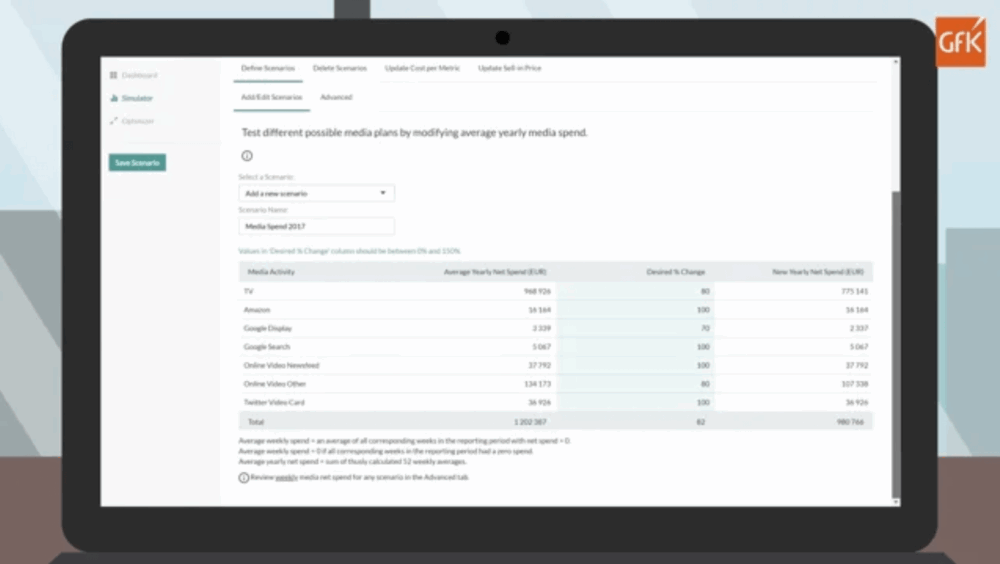
Strengths:
- Robust capabilities in consumer goods and retail analytics
- Global presence allowing for international market insights
- Tech-focused research methodologies
Weaknesses:
- Some users report complex interfaces that can be difficult to navigate
- Potentially less focus on AI-driven insights compared to more tech-centric companies
- May lack comprehensive data integration from diverse sources like social media and online search data
Pricing: GfK’s pricing varies widely based on the scope of services, but projects typically range from $20,000 to over $200,000 annually.
Ipsos
Overview: Ipsos is known for its insights and analytics on brands, markets, and society, offering a broad range of research methodologies.
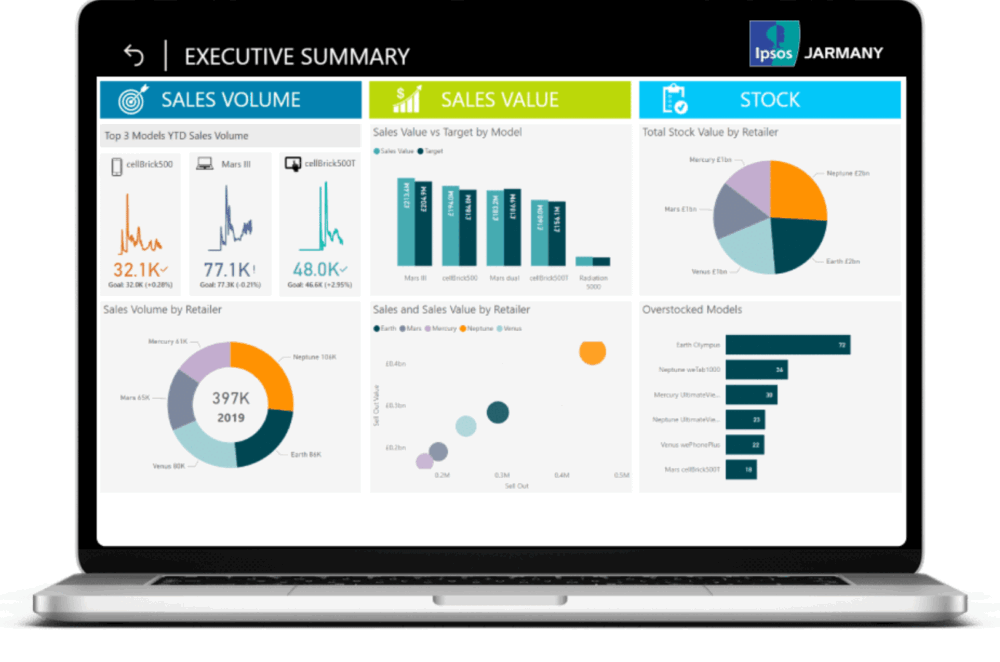
Strengths:
- Diverse research methodologies catering to various business needs
- Global reach providing insights across different markets
- Strong capabilities in public opinion and social research
Weaknesses:
- Potential overreliance on traditional data collection methods
- May lack advanced AI integration for more predictive and real-time insights
- Reports might be less visually appealing or user-friendly compared to more tech-focused competitors
Pricing: Ipsos offers custom pricing, with projects typically ranging from $10,000 for smaller studies to $500,000+ for large-scale, comprehensive research initiatives.
Simporter
Overview: Simporter is an AI-powered platform designed for predicting trends and automating product research, offering a fresh approach to market intelligence.
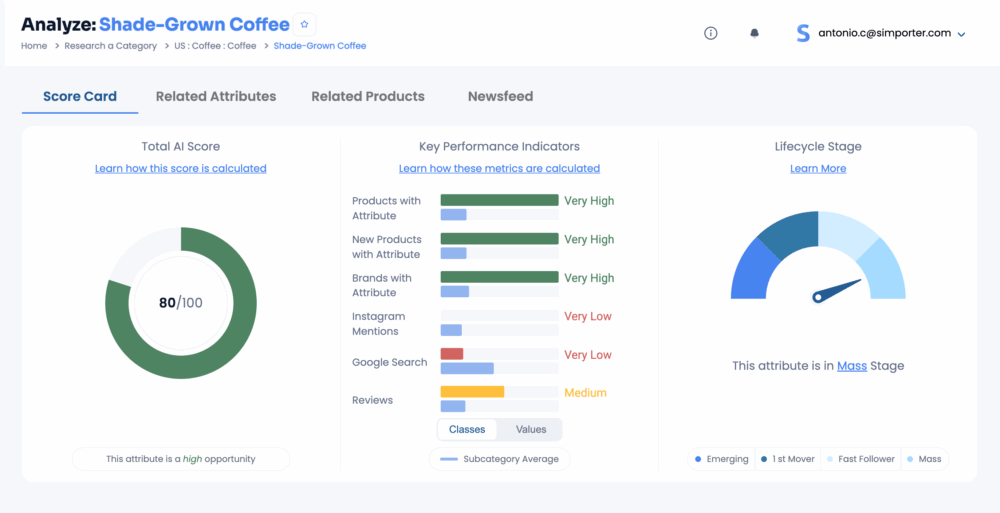
Strengths:
- Led by AI veterans, positioning it as a tech-first company in the market research space
- Comprehensive data integration combining online consumer data (social media, search), point of sale, and panel data
- Intuitive user interface with visually appealing reports, enhancing data interpretation and decision-making
- Price accessibility compared to traditional market research giants, offering competitive rates for enterprise-level insights
Weaknesses:
- As a newer entrant in the market research industry, Simporter is still building its brand recognition
- Fewer long-standing customer relationships compared to established players
- Smaller team compared to industry giants, which may impact the breadth of personalized services
Pricing: Simporter’s services start at $15,000, offering a more accessible price point for businesses seeking advanced, AI-driven market insights.
Conclusion
The market research landscape in the consumer goods industry is diverse, with each company offering unique strengths and approaches. Traditional giants like NielsenIQ and Euromonitor International bring extensive historical data and global reach but may lag in technological innovation and data integration. Mid-sized players like Mintel and GfK offer specialized insights but may face challenges in comprehensive data integration and user-friendly interfaces.
Newer entrants like Simporter are disrupting the industry with AI-driven approaches, comprehensive data integration, and user-friendly interfaces. While they may not have the long-standing reputations of their larger competitors, they offer cutting-edge technology and potentially more accessible pricing for enterprise-level insights.
When choosing a market research partner, it’s crucial to align their strengths with your specific business needs and goals. Consider factors such as:
- The breadth and depth of data sources
- Technological capabilities, especially in AI and predictive analytics
- Ease of use and visual appeal of reports
- Pricing and return on investment
- Industry-specific expertise
Remember that the most expensive option isn’t always the best fit for your needs. A company that offers comprehensive, easily interpretable data at a more accessible price point might provide better value, especially if they leverage advanced technologies like AI.
The ability to quickly gather, analyze, and act on market insights is paramount. Whether you choose a traditional market research giant or an innovative AI-powered platform, the key is to find a partner that can provide actionable insights to keep you competitive.
By carefully evaluating the strengths and weaknesses of each provider, you can make an informed decision that aligns with your business strategy, budget, and long-term goals. In the end, the right market research partner should empower you to make data-driven decisions, spot emerging trends, and stay ahead of the competition in the dynamic world of consumer goods.
